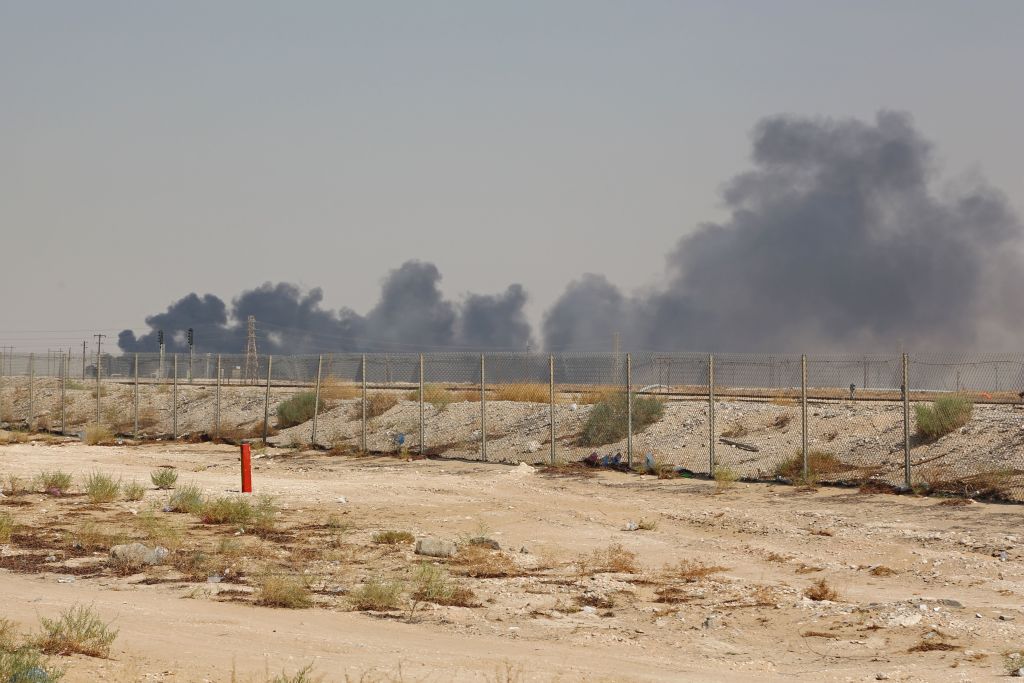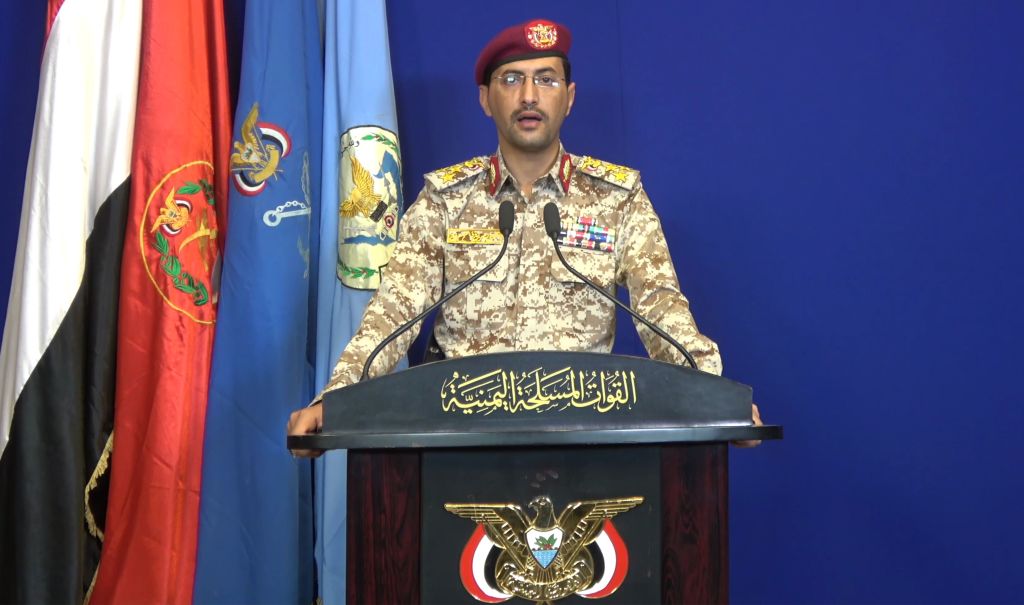
President Donald Trump says the United States is “locked and loaded” after an attack against oil facilities in Saudi Arabia, an American ally and a major producer of the world’s energy supply.
A rebel group in Yemen claimed responsibility for the attacks, which targeted a facility belonging to Saudi Aramco, the Kingdom’s national oil company. However, American officials claim Iran, Saudi Arabia’s regional rival, is to blame.
The finger-pointing has led to a rapid escalation of tensions between the U.S. and Iran, already at a fever pitch following the Trump administration’s withdrawal from a nuclear agreement with Tehran, as well as a series of incidents in the Strait of Hormuz, a key shipping lane.
Here’s what to know about the drone attacks in Saudi Arabia and what lies ahead as the U.S. grapples with an attack against a key ally.
What happened in Saudi Arabia?
Oil facilities belonging to Saudi national energy company Saudi Aramco were struck by a drone attack on Saturday.
The strikes hit the Abqaiq processing facility, the largest crude processing plant in the world, and the Khurais oil field, which is said to produce more than 1 million barrels of crude oil a day, the Associated Press reports. The attacks caused major fires and a large plume of smoke.
The U.S. released satellite photos that it says shows that two Saudi energy facilities had been struck at least 19 times, the AP reports. Saudi oil facilities have been hit by similar strikes in recent weeks, but previous attacks didn’t cause as much damage.
Saudi Aramco said in a statement that no one was injured in the assault.
Who took responsibility for the attacks?
Yemen’s Houthi rebels, who are backed by Iran, claimed responsibility for the attack. The Houthis are a Shi’ite Muslim minority who oppose Yemen’s Saudi-backed government. The United Nations has described the situation as the worst humanitarian crisis in the world, and said in a 2019 report that the conflict is expected to be responsible for 233,000 deaths through this year.
Speaking on a Houthi satellite news channel, spokesman Yahia Sarie said that the rebels had launched 10 drones against the Saudi facility. He threatened to escalate the attacks if the Yemeni war goes on, the AP reports.
The Houthis have used drones since the start of the conflict, including models that are similar to Iranian drones. Iran has denied supplying the rebels with weapons.

Who does the U.S. think is responsible?
In a pair of tweets on Sunday, U.S. Secretary of State Michael Pompeo blamed Iran for the attacks, writing that there is “no evidence” that the drones came from Yemen.
“We call on all nations to publicly and unequivocally condemn Iran’s attacks. The United States will work with our partners and allies to ensure that energy markets remain well supplied and Iran is held accountable for its aggression,” Pompeo wrote.
U.S. officials claimed that satellite images it released showed that the attacks appeared to come from Iran or Iraq, not Yemen, the AP reports.
President Trump tweeted on Sunday that the U.S. has “reason to believe” who attacked the facility, but it is waiting for Saudi Arabia to say who was responsible and share its response. Trump’s tweets came after a White House National Security Council meeting that included Pompeo as well as Vice President Mike Pence and Defense Secretary Mark Esper.
Iran denies responsibility for the attack. On Sunday, Iranian Foreign Ministry spokesman Abbas Mousavi called the American accusations “maximum lies,” the AP reports.
How is the incident affecting oil prices?
The attacks instantly cut the Kingdom’s oil production in half, causing the worst disruption to international oil supplies in history, according to the AP. Saudi Arabia will take weeks to return to its full oil production capacity, according to Bloomberg. The country was responsible for about 12% of the world’s oil production in 2018, according to the U.S. Energy Information Administration.
The supply interruption is leading to increases in the cost of oil. Benchmark Brent crude, which works as a reference point in the global oil marketplace, gained about 20% on Monday, its biggest jump since the 1991 Gulf War, the AP reports. West Texas crude, the U.S. benchmark, increased by about 8%. U.S. gasoline and heating oil prices were up by more than 8% and 7% respectively, according to the AP.
“We have never seen a supply disruption and price response like this in the oil market,” said Saul Kavonic, a Credit Suisse Group AG energy analyst, told Bloomberg.
Those price increases may eventually trickle down into the cost of gasoline for cars and other vehicles.
How will the U.S. respond?
President Trump tweeted Sunday that the U.S. is “locked and loaded,” although the U.S. is waiting for a response from Saudi Arabia.
An anonymous U.S. official told the Associated Press that no decisions were made Sunday, but that all responses, including military action, are on the table.
Trump also announced that he authorized the release of oil from the U.S. Strategic Petroleum Reserve to keep the market “well supplied.” The President added that he’s asking federal agencies to speed up approvals for permits for oil pipelines in Texas and other states. It’s unclear if any such project could be built in time to have a material affect on oil prices in the immediate aftermath of this weekend’s attack.
South Carolina Sen. Lindsey Graham, a Republican, called for an attack on Iranian oil refineries. “Iran will not stop their misbehavior until the consequences become more real, like attacking their refineries, which will break the regime’s back,” Graham wrote.
More Must-Reads From TIME
- The 100 Most Influential People of 2024
- The Revolution of Yulia Navalnaya
- 6 Compliments That Land Every Time
- What's the Deal With the Bitcoin Halving?
- If You're Dating Right Now , You're Brave: Column
- The AI That Could Heal a Divided Internet
- Fallout Is a Brilliant Model for the Future of Video Game Adaptations
- Want Weekly Recs on What to Watch, Read, and More? Sign Up for Worth Your Time
Contact us at letters@time.com